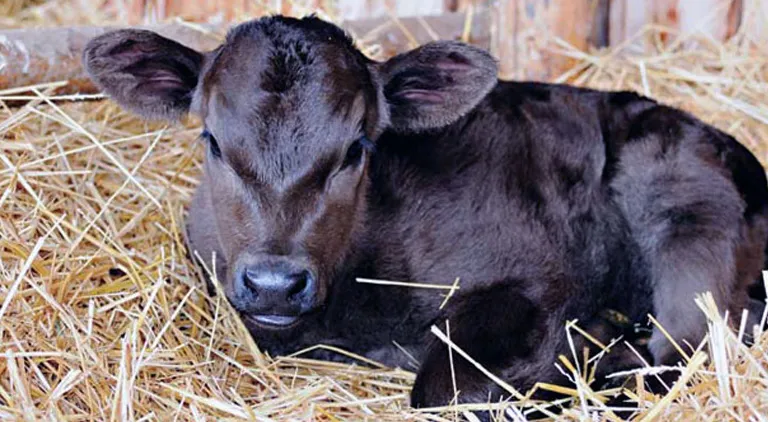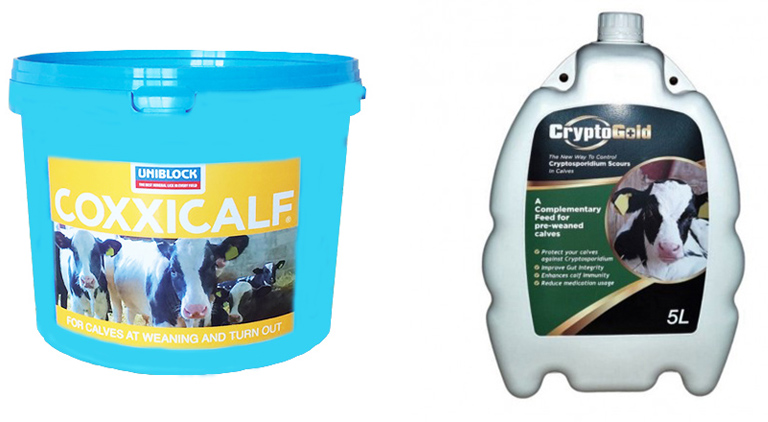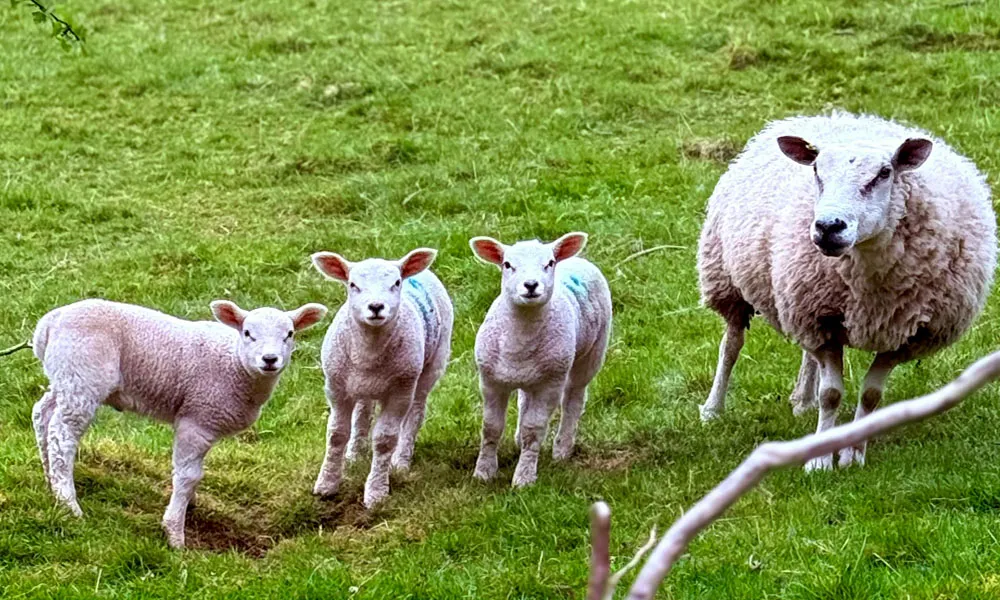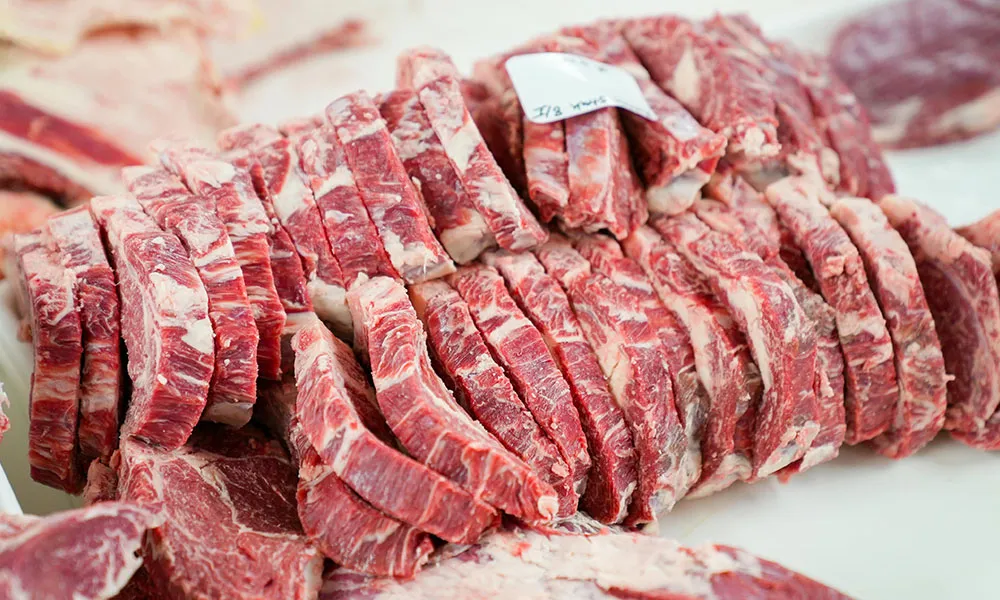
With calving season underway, Agridirect offers some advice on how to prevent cryptosporidium scour in weanling calves
Calving season: exhaustion, joy, and the fear of loss
Calving season is upon us. In fact, we are right in the middle of it. So if you see any farmers walking around with bags under their eyes, or dozing off mid-conversation, don’t worry. It’s an annual occurrence. They’ll be fine again by late April or May. Jokes aside, this is one of the hardest periods in the farming calendar. Staying up all night waiting for cows to calve is only a small part of the picture. Farmers have to be hyper vigilant in the weeks after calving, too, and especially at weaning time. This is because weanling calves are vulnerable to disease. They are particularly susceptible to parasitic diseases that can swipe them within a few days. Perhaps the most insidious of these parasitic diseases is one that hundreds of Irish farmers curse every year. It is, of course, cryptosporidium.
What is cryptosporidium:
To put it bluntly, cryptosporidium, sometimes known as crypto, is a parasite that invades the intestinal tracts of animals. Among all of the nasty parasites that scourge farmers, crypto is one of the nastiest. The parasite has 3 developmental stages: meronts, gamonts and oocysts. Crypto reproduces in the walls of the intestinal tract. Once it has developed to the oocyst stage, it can survive outside the host for some time. It tends to lie on the feces of infected animals, and this is how it spreads.
Symptoms of Cryptosporidium:
The primary symptom of cryptosporidium is scour. Crypto parasites are responsible for most fatal calf scour cases. Unless properly treated, the onset of crypto-related scour is likely to be fatal. With the constant expulsion of fluid from its body, the calf will simply succumb to dehydration. Even when well treated, calves might not survive crypto. What farmer isn’t familiar with the pain of losing a calf after spending several sleepless nights treating it? Reports from DAFM and DARD veterinary services have revealed that up to 40% of calf deaths in the first six weeks after birth are attributable to scour. The frequency with which calves succumb to scour means that cryptosporidium is inestimably destructive of farm revenue in Ireland.
Treatment:
So your calves have scour from cryptosporidium? OK. You have to take immediate action, to make sure that he or she is hydrated. Remember that if death occurs, it will likely be from dehydration. Make sure that the calf has access to plenty of clean drinking water. If possible, you should add some electrolytes, too. These will help to facilitate bodily functions while the calf’s organs are under pressure. It is also a good idea to call your vet, who might give you a prescription for Halocur. If you do manage to rescue your calf from the menace of scour, congratulations! But your well-earned celebratory drink should be bittersweet. Even when treatment of crypto is successful, most calves never fully recover from it. If you wanted to estimate the total loss of revenue on Irish farms due to cryptosporidium, you would also have to factor in the loss of body condition due to scour. When calves contract crypto scour, they don’t normally thrive afterwards. At best, this leads to delayed finishing times and poor selling prices. At worst, it means susceptibility to further disease.
Prevention is Better than Cure:
This brings me around to a final key point. When it comes to cryptosporidium, prevention is better than cure. Like a range of other animal diseases, cryptosporidium in calves is difficult to cure. The only drug treatment for it, Halocur, is available only with a veterinary prescription. It is a radical drug, and you don’t want to have to use it if you can avoid it. Instead, you should take pre-emptive action over the coming weeks. There are excellent food supplements now on the market, which help prevent the onset of cryptosporidium in weanling calves. For instance, a new mineral lick from Uniblock, called Coxxicalf, if fortified with seaweed, yeast and essential oils. These ingredients will help to improve your weanlings' digestion, reduce protein degradability, and improve immunity to parasites like cryptosporidium. Another excellent supplement is CryptoGold, which should be given to calves in the weeks prior to weaning. This is a natural product, so it’s perfect for all you organic farmers! CryptoGold is made from citrus extract and sodium chloride citrus seed extract, and promises to protect gut integrity. Any product that helps to maintain a healthy gut will reduce the risk of crypto oocysts developing in your calf’s intestinal tract. Then there are the old reliables. Dycoxan is a strong oral drench with powerful anti-coccidial properties. A long-standing favourite for farmers, it will help to safeguard your calves against the development of crypto oocysts. And for those of you who prefer boluses and capsules to oral drenching, Cryptocaps are a tried and tested way of preventing the onset of cryptosporidium. An egg-powder capsule supplement, Cryptocaps will help to boost calves' overall immunity to coccidia parasites.
Another excellent supplement is CryptoGold, which should be given to calves in the weeks prior to weaning. This is a natural product, so it’s perfect for all you organic farmers! CryptoGold is made from citrus extract and sodium chloride citrus seed extract, and promises to protect gut integrity. Any product that helps to maintain a healthy gut will reduce the risk of crypto oocysts developing in your calf’s intestinal tract. Then there are the old reliables. Dycoxan is a strong oral drench with powerful anti-coccidial properties. A long-standing favourite for farmers, it will help to safeguard your calves against the development of crypto oocysts. And for those of you who prefer boluses and capsules to oral drenching, Cryptocaps are a tried and tested way of preventing the onset of cryptosporidium. An egg-powder capsule supplement, Cryptocaps will help to boost calves' overall immunity to coccidia parasites.
Signing Off:
So that’s it from the animal medicine corner for this week. I hope you are all managing to get some sleep. If not, just remind yourself – quieter days aren’t so far away. You can enjoy the fruits of your sleeplessness on sale day when, hopefully, you will have strong, crypto-free calves! MPG










